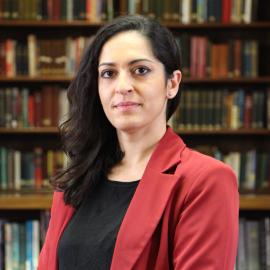The goal of this project is to contribute to the existing knowledge base on unmanned aerial vehicle (UAV) proliferation and its broader implications by focusing specifically on the Middle East.
The two main research questions addressed in this paper, published in 2018, are:
- What are the flows of UAV technology from and to the Middle East and their uses?
- Which norms, practices and methodologies are exported to and/or used by Middle Eastern powers in the deployment of UAV technology?
The focus of the study is on UAVs that fall under the ‘Category 1’ and ‘Category 2’ definitions of the Missile Technology Control Regime. In the Middle East, the countries that operate or simply possess these drones are Jordan, Iraq, Israel, Saudi Arabia, the UAE, and Turkey.
This paper thus provides an in-depth inventory of armed drones, as defined under the two categories, possessed by each of these states, assessing how many, which types, how and when they were acquired. It also explores where and how each of these states have used their armed drones.
The main conclusions drawn by this paper are that over the past few years more and more countries across the Middle East have acquired armed drones, either by importing them (Jordan, Iraq, Saudi Arabia and the UAE) or by building them domestically (Israel, Iran and Turkey). China, a no-questions-asked exporter of drones, has played and is likely to continue playing a key role as a supplier of armed UAVs to the Middle East.
In terms of use, the introduction of UAVs into service seems to have affected the employment and understanding of airpower only in the cases of Iran, Turkey and the UAE. For all other countries in this study, while armed drones are still perceived as a matter of prestige and are viewed positively by the political establishment and the population, their acquisition has not resulted in a visible change in the way those countries view their own airpower and the projection of power through strikes.
Project Team

https://rusi.org/people/bassiri-tabrizi

https://rusi.org/people/bronk